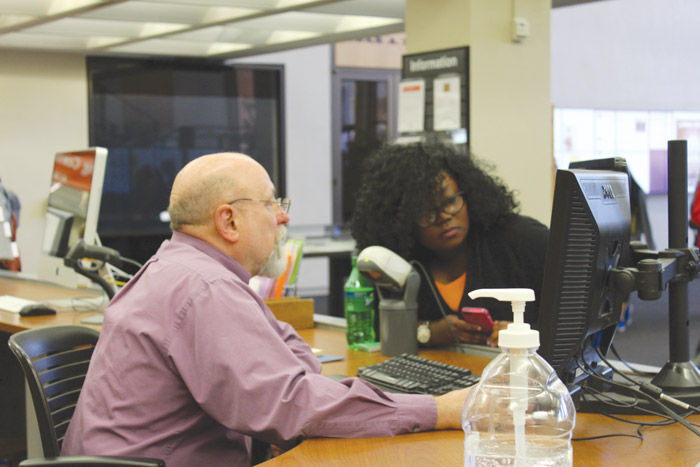Pending approval by the fee committee, Clemson University graduate students could find a new $85 library fee on their tuition bill — a fee that is currently paid solely by undergraduate students with more than thirty cumulative hours.
The fee is an attempt to cover the library’s annual inflationary costs of serials and to purchase library materials in support of the university’s curriculum. Current journal expenditure will be maintained with the use of annual fee income, as opposed to one-time funds like donations or salary lapses.
Graduate students use library services 40 percent of the time (excluding online databases), and according to Dean of Libraries Maggie Ferrell, the money accrued by this fee will be reinvested in library collections that graduate students need in order to compete with other institutions. It will have a “direct impact on the success of students.”
Ferrell added that they have also appealed to the fee committee to add the fee to the undergraduate freshmen bill.
“Clemson library services are woefully unfunded,” commented Ferrell. “If you look at the figures, you can see that our peer institutions pay way more for collections.”
“Collections” is another term for library materials. According to Ferrell, graduates need a more robust collection than undergraduates, who only require a more general collection.
According to a document listing peer institutions and their library funds, Clemson University’s library material budget just exceeds $7 million compared to other institutions including Georgia Tech and University of Arizona, which average around 12-15 million in library material expenditures. The institution listed with the largest expenditure is Texas A&M with a spending total of $23,609,080.
Clemson Library’s recent financial shortfalls have been covered by temporary salary lapses, discontinuation of unnecessary publications and a reduction in needed book purchases.
Ferrell predicts that the fee will generate an additional $600,000-700,000, all of which will maintain current journal expenditure and also be directed towards book and media collections. When one-time funding is granted to the library, Ferrell said, that money will be reinvested in Cooper Library itself.
“The take-away from this is that our students, especially our graduate students, are at a competitive advantage. (Let’s say) a graduate
student is working on their dissertation. With our current situation, these students will not be exposed to as many resources as their peers at different institutions.”
Despite these numbers, the Graduate Student Body President Guneet Bedi says that the graduate students he has discussed the proposition with are unhappy — in particular, those graduate students who are located at campuses in Greenville and Charleston and only use the online resources.
“When the fee was first brought to my notice, it was a surprise. It’s a big amount. And since it’s being initiated for the very first time, $85 directly, that’s a surprise to many graduate students … We have campuses in Greenville and Charleston who do not use direct library services. But these fees are across the board. We understand that there is a need to expand the library resources, but there needs to be more planning.”
According to President Bedi, the communication between the library and the students has slacked, and that when it comes to implementing new fees, there has to be a collective approach.
“If [the] library [reached] out and told the student body what the fee will entail — show exactly where this fee will go here, and show some statistics. This is actually a need. If you show the students that their fee is increasing their bill by $85, the reaction will not be a welcoming one. The library should make an effort to reach out to students and tell them what the proposed plan is, what the statistics are.”
Bedi also proposed that if students can make sense of where their money is going, there would be less of a pushback.
“We have to talk amongst each other, involve other (Clemson) campuses, involve the student body in these conversation, involve the student government. We can then make a better, more informed, decision.”
Categories:
Grad students to pay library fee
Tessa Schwarze, Senior Staff Writer
March 3, 2016
0
Donate to The Tiger
Your donation will support the student journalists of Clemson University. Your contribution will allow us to purchase equipment and cover our annual website hosting costs.
More to Discover








